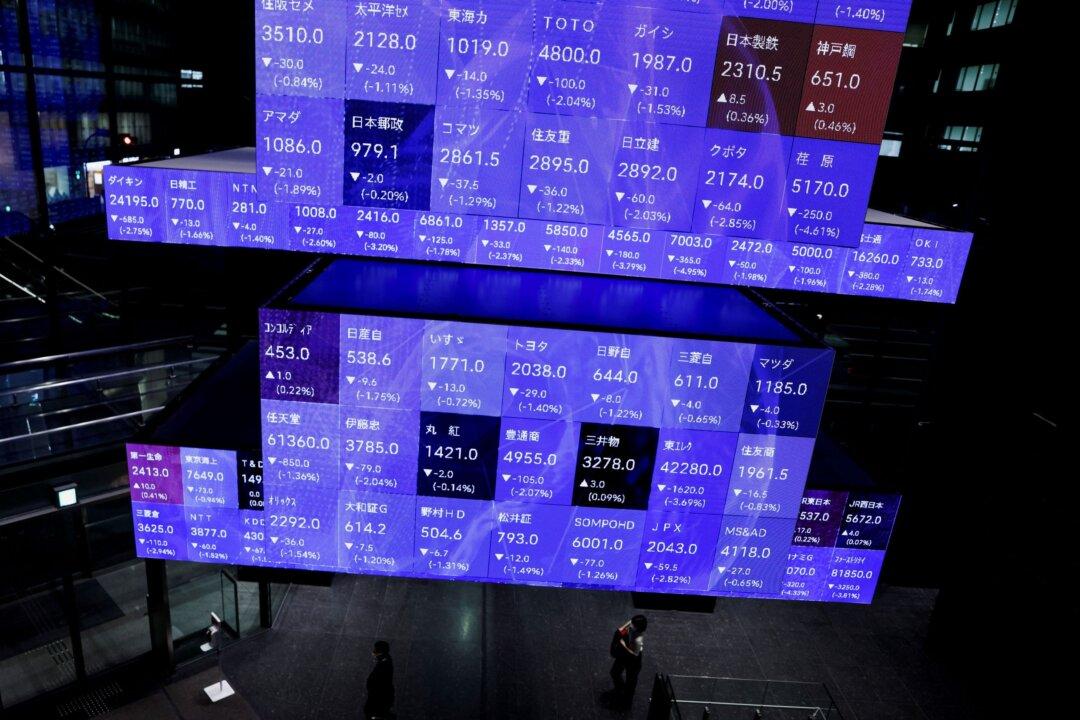LONDON—Stocks fell, while safe havens such as government bonds and the dollar rose, as anxious investors fled risk assets after Russian President Vladimir Putin on Wednesday ordered a mobilization over Ukraine and accused the West of “nuclear blackmail.”
European currencies came under fire, with the euro dropping 0.4 percent to $0.9932 and sterling last down 0.3 percent at $1.1346, after having touched a new 37-year low at $1.1304.





